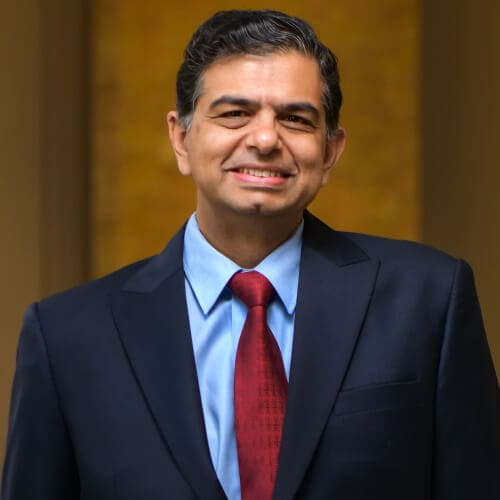

How can the Union Budget 2025 stimulate India’s economic growth?
Recognising the challenges facing the Indian economy, it is crucial to understand the context in which the budget is being presented.
Finance Minister Nirmala Sitharaman tabled the Union Budget 2025 for the eighth consecutive time in the Lok Sabha. Experts from PwC India delve into key economic challenges and opportunities for growth. Watch this space for important highlights, sector-specific reforms that can enhance the Indian economy, implications and industry-specific impacts.
The Finance Minister has introduced the Income-Tax Bill 2025, marking a significant step toward a simplified, modern, and efficient tax framework without making significant changes to the existing law. This initiative aligns well with India’s push for ease of doing business and supports the country’s vision of becoming a developed economy by 2047.
This is a modal window.
Tune in for expert insights into the much-anticipated bill, which aims to simplify and modernise the Income Tax Act, 1961. Understand key aspects of this landmark reform, exploring its implications and the new era of tax administration it heralds.
Tune in for expert insights into the much-anticipated bill, which aims to simplify and modernise the Income Tax Act, 1961.
Join us as we delve into the key aspects of this landmark reform, exploring its implications and the new era of tax administration it heralds. Don’t miss this opportunity to stay ahead with timely, relevant, and actionable information.

Partner, PwC India

Partner, Price Waterhouse & Co LLP

Advisor, Price Waterhouse & Co LLP and Former member of CBDT P

Partner, Price Waterhouse & Co LLP
Budget 2025-26 provides a roadmap for introduction of new income-tax bill, tax reforms including no income tax on earnings up to INR 12 lakhs benefiting middle-class taxpayers, rationalised TDS requirements and providing certainty to non-residents. It also overhauls indirect taxation with comprehensive amendments to Customs, Central Excise, and GST laws, while providing basic Custom Duty exemptions on specified goods to facilitate ‘Make in India’.
The 2025 Budget highlights the government's focus on agriculture and the expanding middle class. Key measures include rationalising tax slabs to boost consumption-driven growth, allowing 100% FDI in insurance companies to address market gaps, continuing support for GIFT City as a global financial hub, providing tax clarity for AIF income, and establishing a national framework for global capability centers in Tier-2 cities. The spotlight now shifts to the upcoming simplified Income-tax Act, promised to be half the length of the current law, to be tabled next week.
The Union Budget 2025–2026 focuses on economic growth, global competitiveness, and business facilitation. Key measures include MSME support, innovation-driven reforms, and tax simplifications to reduce disputes and benefit domestic businesses.
Explore the key tax and regulatory themes from PwC’s budget booklet, with a focus on the business impacts of tax policy changes for multinational corporations.
“A country is not just its soil; a country is its people", and the Union Budget reflected just that. With a strong focus on skilling, employment, establishing training institutes and centres of excellence, India is on a mission to build a future-ready workforce and cultivate a new generation of AI innovators.
Sanjeev Krishan, Chairperson, PwC in India

“The budget addresses both urban and rural livelihoods through targeted investments and skilling, making sure that more opportunities and increasing incomes are generated over a long period of time. Given the slowdown in consumption in last one year or so in the Indian economy, the tax breaks are all set to improve demand over the next two years, especially in rural areas.
Arnab Basu, Partner and Advisory Leader, PwC India

“Union Budget 2025 charts a clear path for India’s rise as a global leader, with key announcements set to fuel innovation, education and economic growth. The extension of the tax holiday for startups, coupled with the creation of an INR 500 crore centre of excellence in artificial intelligence for education, positions India as a breeding ground for future entrepreneurs and technological advancements.
Vivek Prasad, Partner and Leader, Markets, PwC India

“With the INR 500 crore allocation for establishing a new centre of excellence for AI, the government has demonstrated its commitment to nurturing future- ready talent. This investment is essential for boosting national competitiveness, driving economic growth and tackling societal challenges by embracing technology. It also lays a strong foundation for a robust AI ecosystem.
Manpreet Singh Ahuja, Chief Digital Officer and TMT Leader, PwC India

Tax collected at source (TCS) on sale of goods has been removed. In addition, higher withholding tax rates applicable to recipients not filing their tax return are removed.
This is a modal window.
Recognising the challenges facing the Indian economy, it is crucial to understand the context in which the budget is being presented.
By Ranen Banerjee, Partner and Leader Economic Advisory, PwC India

The budget provides a framework of transformative reforms across six key domains which will augment India’s growth potential and global competitiveness: (i) taxation; (ii) power sector; (iii) urban development; (iv) mining; (v) financial sector; and (vi) regulatory reforms. This webcast covered key budget announcements, economic indicators and industry experts’ perspectives to help you navigate the evolving business landscape.

Aligned with the vision of becoming Viksit Bharat by 2047, it is anticipated that the Government will take targeted measures to strengthen manufacturing capabilities, supporting the expansion of global capability centres (GCCs), simplifying tax regulations to facilitate ease of doing business and providing impetus to make India an attractive investment destination.
Join our panel of subject matter experts for a webinar as they decode Union Budget 2025 and provide a deep dive into the key policy announcements and implications for businesses.

Chairperson
PwC in India

Partner
Price Waterhouse
& Co LLP

Advisor
Price Waterhouse & Co LLP
and Former member of CBDT

Partner and Leader
Research and Insights Hub
PwC India

Day and date:
Monday, 3 February 2025

Time: 9:30am (India) | 3pm (Sydney) | Noon (Singapore/Hong Kong
Click here to register
Day and date:
Monday, 3 February 2025

Time: 8:30pm (India) | 3pm (London) | 10am (New York)
Click here to register

Partner, PwC India

Partner, Price Waterhouse & Co LLP
This is a modal window.
Ranen Banerjee, Partner and Leader, Economic Advisory, PwC India, shares his perspective on how the budget has addressed the top three key priorities and whether it has truly lived up to the industry expectations.
This is a modal window.
Sambitosh Mohapatra, Partner and Leader - ESG, Climate and Energy, PwC India, shares his perspective on how the budget moves beyond announcements to real action, with bold steps in nuclear energy, critical reforms in power distribution and a renewed focus on sustainability.
This is a modal window.
Gautam Mehra, Partner, PwC India, shares his reflections on how the budget goes beyond short-term fixes to deliver long-term confidence. From simplifying tax regulations to fostering investor trust and driving economic stability, the budget reflects a forward-looking vision that aligns with India's growth aspirations.
This is a modal window.
Tune in as Bhavin Shah, Partner and Leader, Private Equity and Deals, PwC India, shares his perspective on how the budget sets the stage for long-term economic growth.
From tax rationalisation aimed at boosting consumption to bold steps in sectors like insurance, startups, and global capability centers, the budget aims for sustainable development.
This is a modal window.
Tune in as Mohammad Athar (Saif), Partner and Leader, Capital Projects and Infrastructure Development, PwC India, shares his perspective on how the budget focuses on urban transformation, enhancing connectivity, and driving tourism development. With a strong emphasis on public-private partnerships and enabling private sector investment, the budget sets the stage for inclusive growth and infrastructure development across the country.
This is a modal window.
Pratik Jain, Partner at PwC India, shares his insights on how the budget addresses key challenges – boosting consumption, promoting Make in India, and enhancing regulatory clarity. With significant tax relief, a strong push for labor-intensive industries, and simpler tax regulations, the budget delivers tangible measures to stimulate growth while maintaining fiscal prudence.
The Government should introduce a special bonded logistics park regime to facilitate efficient manufacturing, assembly and re-exports by large multinational corporations (MNCs), as a part of their China plus one strategy and enable such MNCs to make India a part of their global value chains. This could be done by introducing specific legislative amendments related to exempting storage of raw materials and goods in India, just-in-time deliveries without value addition, allowing passive ownership of capital equipment for contract manufacturing, and a simplified alternative taxation regime for the discharge of personal income taxes of foreign employees/technicians visiting India.
The Government should consider extending drawback/Remission of Duties and Taxes on Export Products (RODTEP) benefits on goods manufactured in the Manufacturing and Other Operations in Warehouse Regulations 2019 (MOOWR) premises and exported thereafter. MOOWR regulations should be suitably amended to allow depreciation allowance for computing import duty on capital goods when removed from the bonded premises.
Know moreCompliances by non-residents
The law should explicitly provide that non-resident entities with a business connection in India, but no taxability due to tax treaty benefits, are not required to undertake procedural compliances under domestic law, such as obtaining a PAN, filing returns of income, or withholding obligations.
Doing away with the obligation to issue TDS certificates.
The issuance of TDS certificates (in Form 16A) should be made optional for the tax deductors so that they are required to generate and share the certificates, if and when requested by the deductees.
Simplifying the overall process for applying for the Lower Deduction Certificate (LDC) under section 197 of the Act.
Introduction of multi-year Lower Deduction Certificate LDC facility enabling eligible taxpayers to apply for and receive certification for reduced or nil tax deduction rates over a predefined period, spanning multiple years (e.g. 2-3 years)
Proposed changes in Authorised Economic Operator (AEO) Certification such as:
Others
Extension of the sunset clause for reduced tax rate for manufacturing companies:
The concessional corporate tax rate of 15% was available to new domestic manufacturing companies under section 115BAB, which commenced manufacturing operations before 31 March 2024. The Government should consider extending the deadline, with appropriate safeguards, beyond 31 March 2024, and focus on the inclusion of critical sectors such as semiconductor chip designing, AI, EV’s, and data centres.
The Act deems loans or advances by closely held companies to their certain categories of shareholders or related concerns as dividends, unless they are given in the normal course of money-lending business. This applies to International Financial Services Centre IFSC and foreign companies as well. This may discourage multinational groups from setting up their corporate treasury centres in IFSC as finance companies. The deemed dividend provisions should not apply to any loans or advances extended by finance companies located in IFSC.
A dedicated tax office should be set up in GIFT-IFSC exclusively for dealing with the income -tax issues of the entities registered under IFSC so as to make the tax process easier and faster for them and to encourage more foreign investment and activity in the zone by providing them with a stable and transparent tax system
To promote listing and increase capital inflow into the IFSC, the current tax exemption on capital gains from the transfer of assets such as bonds, global depository receipts, and derivatives listed on recognised stock exchanges in the IFSC should be extended to include equity shares listed on recognised stock exchanges in the IFSC.
Section 68 of Companies Act 2013 permits buyback out of (a) retained earnings or (b) share premium or (c) proceeds of issue of another type of shares or securities. Hence, where a buyback is actually made out of share premium or proceeds of issue of another type of shares/securities, the new regime will lead to artificial taxation of capital receipt as dividend income. It should be clarified that the buyback proceeds should be treated as dividends only to the extent the company undertaking the buyback possesses accumulated profits. The balance consideration should enter the capital gains computation in a manner similar to capital reductions and liquidations.
The import of physical goods should be expressly kept outside the purview of the SEP provisions. It is also recommended to bring out the rules for computing profits which can be attributed to an SEP in India. In addition, to reduce compliance burden, exemption should be provided from procedural requirements (like obtaining PAN, filing return, etc.) where SEP is triggered but treaty protection is available.
The high margins and low turnover thresholds prescribed for certain transactions have made the SHR, in its current form, unattractive . While the finance minister, had expressed the Government’s intention to expand the scope of the current SHR in last year’s budget speech to make it more attractive, there has been no major announcement on this yet. The Government should also provide a window to move pending cases from the advance pricing agreement (APA) programme or Tribunals/ Courts to the SHR programme. The rationalised SHR may also be incorporated as an accelerated APA option where eligible taxpayers can opt for this as an accelerated APA instead of a full APA process.
At present, the resolution of TP issues through appellate/ judicial forums is a long-drawn and time-consuming process. Setting up an alternate dispute resolution mechanism in the form of a non-mandatory/ non-binding process of mediation at the time of assessment/ appellate stage, designed to arrive at a fair and agreed quantification of change in transfer prices, should thus be enabled. This mechanism should prevent the creation of disputes that would, in normal course, have travelled to higher appellate levels leading to a quick resolution of TP issues and tax certainty.
The Government should look to bring in clarity and certainty for addressing Permanent Establishment and income attribution related issues being faced by data centres in India.
Dedicated capex import scheme for promotion and establishment of data centres.
The role of entrepreneurial and private business (EPB) is very important for the growth of the Indian economy as it contributes upwards of 70% of the gross domestic product (GDP) of the nation [RG1]. In addition to driving job creation and innovation, EPBs boost the economic growth of the country. While the Indian economy is striving towards reaching USD 5 trillion by 2027 [RG2] and achieving the subsequent vision of ‘Viksit Bharat’ by 2047, the expectations associated with Union Budget 2025 are inclined towards transformative measures which will be necessary to fulfil the evolving needs of this prime segment.
Budget 2024 gave the boost to the EPB sector with its INR 1 lakh crore [RG3] innovation fund and the abolition of the angel tax. To give it further momentum, the focus for 2025 will include creating a very robust, inclusive and future-ready environment for EPBs.
The key expectations from Budget 2025 will be as follows:
Union Budget 2025 is anticipated to introduce a practical solution to the challenges faced by EPBs while facilitating growth and innovation. Key measures like streamlining financing, simplifying tax compliance, encouraging digital transformation and boosting employment, will thus be crucial for fostering a robust and inclusive economy.
This is a modal window.
This is a modal window.
This is a modal window.
This is a modal window.
This is a modal window.
This is a modal window.